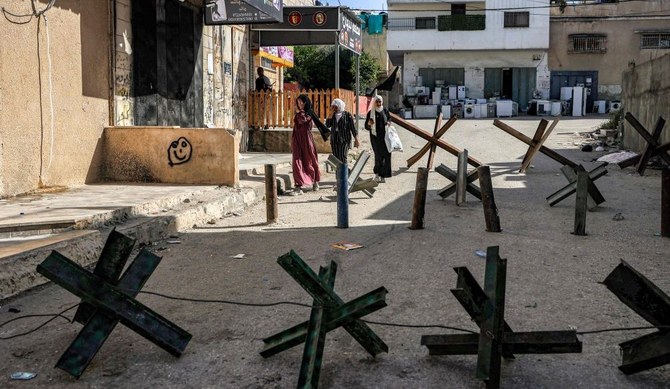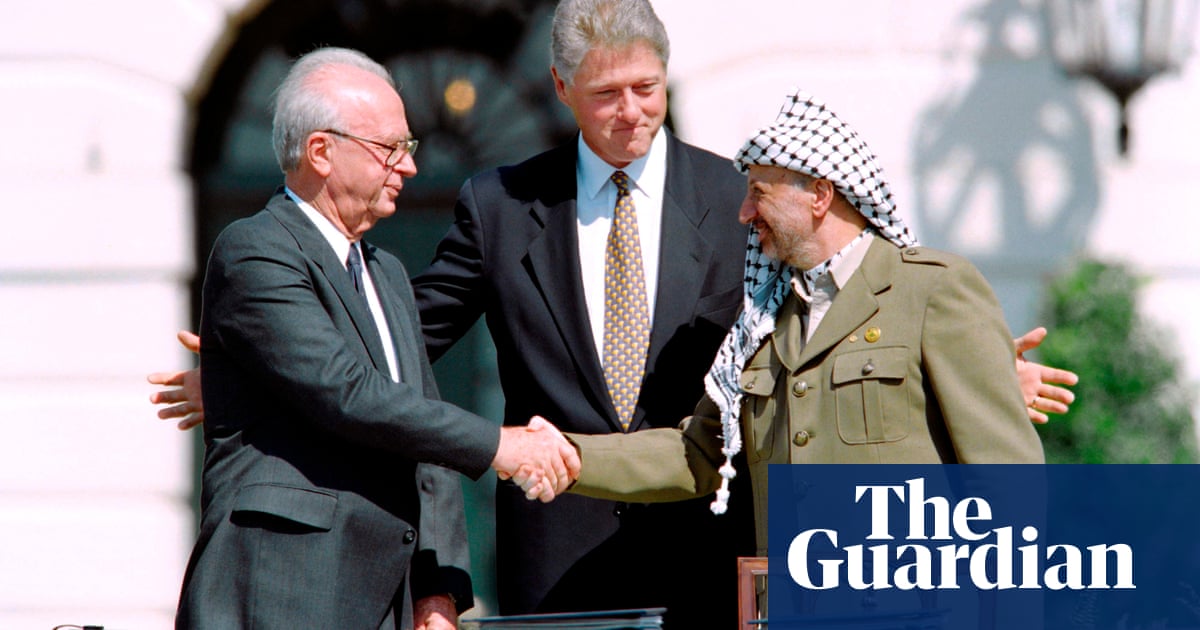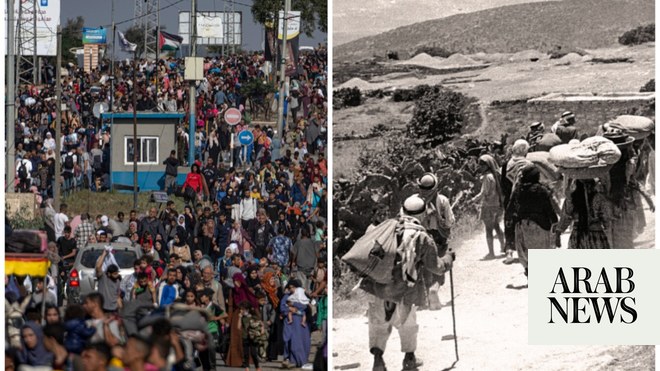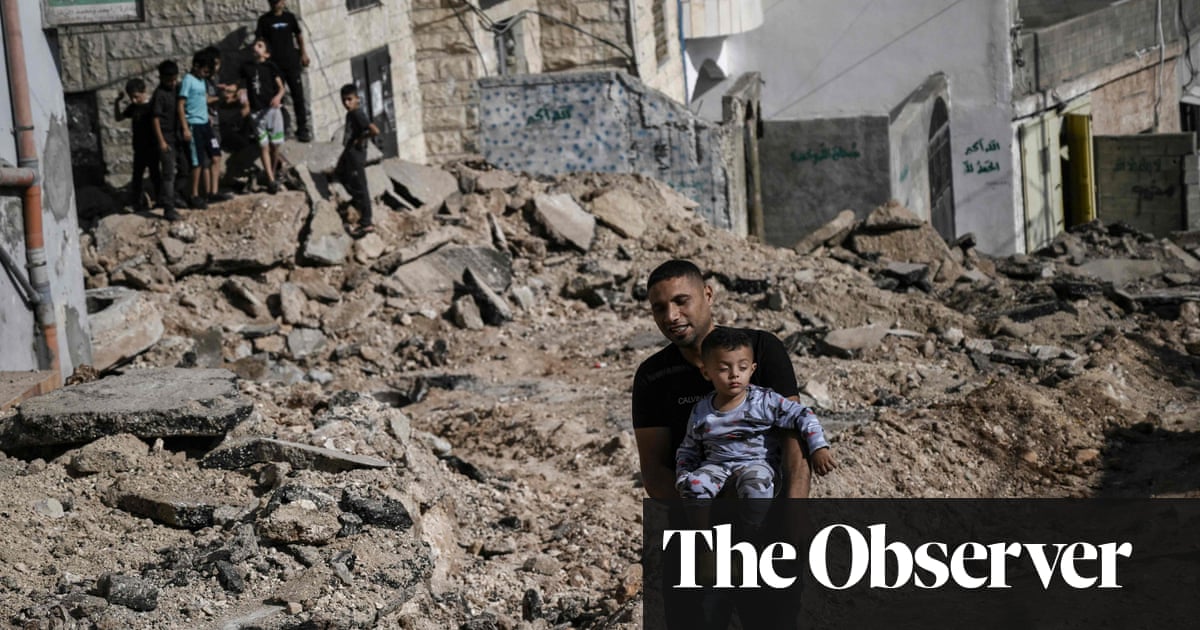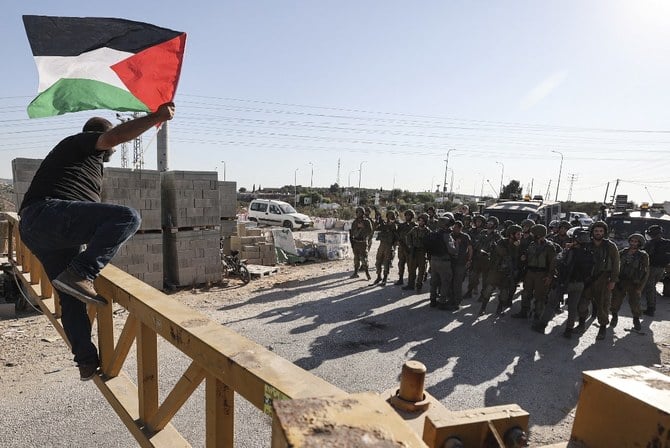
Newton’s third law is very clear: for every action, there is an equal and opposite reaction. But for some reason, whenever a violent action takes place against Israelis, they seem totally surprised as to its reasons and motivation. Israelis describe any violence against any Israeli, whether soldier, settler or civilian and whether in Jerusalem, Jenin or Tel Aviv, to be a terrorist act.
Even though then-Israeli Prime Minister Yitzhak Rabin and Palestinian leader Yasser Arafat exchanged letters of recognition (between Israel and the Palestine Liberation Organization) in 1993, Israelis continue to deny the existence of Palestinian nationalism. They also wrongly keep demanding that Palestinians recognize Israel, even though that took place 30 years ago.
In addition, Israelis want the 13 million Palestinians, many of whom live or used to live in what is now Israel, to go one step further. They want Palestinians to recognize Israel as the homeland of the Jewish people, ignoring the fact that 20 percent of the population living within the internationally recognized areas of the state of Israel are not Jewish. Instead, Palestinians and others say that, if it wants to be seen as a democracy, Israel should simply be the country of its citizens, whether Jewish, Druze, Muslim, Christian or agnostic.
The cycle of violence does not, of course, happen in a vacuum. As Newton’s third law suggests, the actions against Israelis, including deadly violence, are usually a reaction to something that happened to Palestinians the day, month or years before. Unlike the expectations of Israeli Zionists, which Palestinians will one day forget, their national and personal memories cannot be extinguished, no matter how much Israelis want them to be.
The surprise that bewilders Israelis is the result of politicians and leaders not doing their job of warning their own people of the possibility of something happening. If you violently attack your neighbors and burn down parts or all of their homes, you would be stupid if you did not expect some type of retaliation. In fact, the Israeli army itself uses retaliation as what is considered a necessary part of the policy of deterrence.
So, if a useless rocket is shot from Gaza, every single person living in Gaza can expect an Israeli raid of some sort and possible punishment, including the fisherman, who will be further limited in the areas they are allowed to work. And in the West Bank, the now-routine collective punishment of demolishing a home is also used as revenge for any violence against Israelis. Since the new far-right Israeli government took over, innocent Palestinians who were forced to build their homes without licenses because official permission is impossible to obtain are being retaliated against even though they have nothing to do with anti-Israeli attacks.
It will take both courageous leaders and courageous journalists and publishers to help break this cycle
Daoud Kuttab
Therefore, the question persists — if Newton’s law is valid, why are Israelis surprised by Palestinian reactions to attacks against them?
In addition to the silence of their leaders, one guilty party might be the media. The Israeli media gives little and at times no attention to what is being done by their soldiers and army-protected settlers in the Occupied Territories.
The Israeli media, with the world’s best spin, always justifies Israeli actions. They often create a totally fake context that ignores the Palestinian narrative or the facts on the ground. When journalist Shireen Abu Akleh was killed last year, Israel immediately provided what appeared to be a rational explanation, except it was a total lie.
When 10 Palestinians were killed in Jenin, Israelis were surprised by the attack in Neve Yaakov and, when five Palestinians were killed in the Aqbat Jaber camp near Jericho, Israelis were surprised by a Palestinian shooting or stabbing or ramming Israelis. When female Palestinian prisoners sent an SOS about the way they were being repressed in Israeli jails, Gazans shot a rocket that surprised Israelis, who had no idea of what was happening to the female Palestinian prisoners even though the story made the rounds in the Arab media.
Sometimes, the retaliation takes hours or days, while at other times it can take years. The attack in Neve Yaakov was carried out by Palestinian Khairy Alqam, who was named after his grandfather, who was stabbed to death by a supporter of the racist Israeli rabbi Meir Kahane 25 years earlier. A student of Kahane, Itamar Ben-Gvir is now the minister of national security throwing oil on the fire.
The conflict will not be resolved until people, and especially political leaders, have the will to break this cycle of bloodshed. Knowledge will increase pressure on them and weaken their justifications.
Media awareness of the reality of the other side could be an important ingredient in causing change, while media silence allows for the continuation of the unacceptable cycle of killings, revenge, collective punishment and yet more killings.
It will take both courageous leaders and courageous journalists and publishers to help break this cycle.
Revenge by either side is not the answer. In general, the violence can only end when both sides accept each other and their rights, including the basic right of self-determination. Palestinians and the world have recognized Israel, but Israel and Western countries (except for Sweden) are yet to recognize Palestine.
In a situation of an oppressor and the oppressed, the latter knows a lot about his tormentors, but the general public of the occupier is oblivious to the subjects whose lives they are controlling. The Palestinian and Arab media are full of articles republished from the Israeli media, yet the Israeli media hardly gives any attention to what is happening in the areas that Israel occupies.
A change in the unacceptable status quo begins with a change in how the Israeli media covers the Occupied Territories. Such coverage will not be easy, as many Israeli media moguls say Arab issues do not sell. But if we all want a change in our region and an end to this senseless, decades-old war between Israelis and Palestinians, financial decisions should not take precedence. A well-informed Israeli public would surely help move the needle to the point where we can see a political change, as well as to break this crazy logjam we are all living in.
Daoud Kuttab is a Palestinian journalist from Jerusalem. He is a former Ferris Professor of Journalism at Princeton University. Twitter: @daoudkuttab





